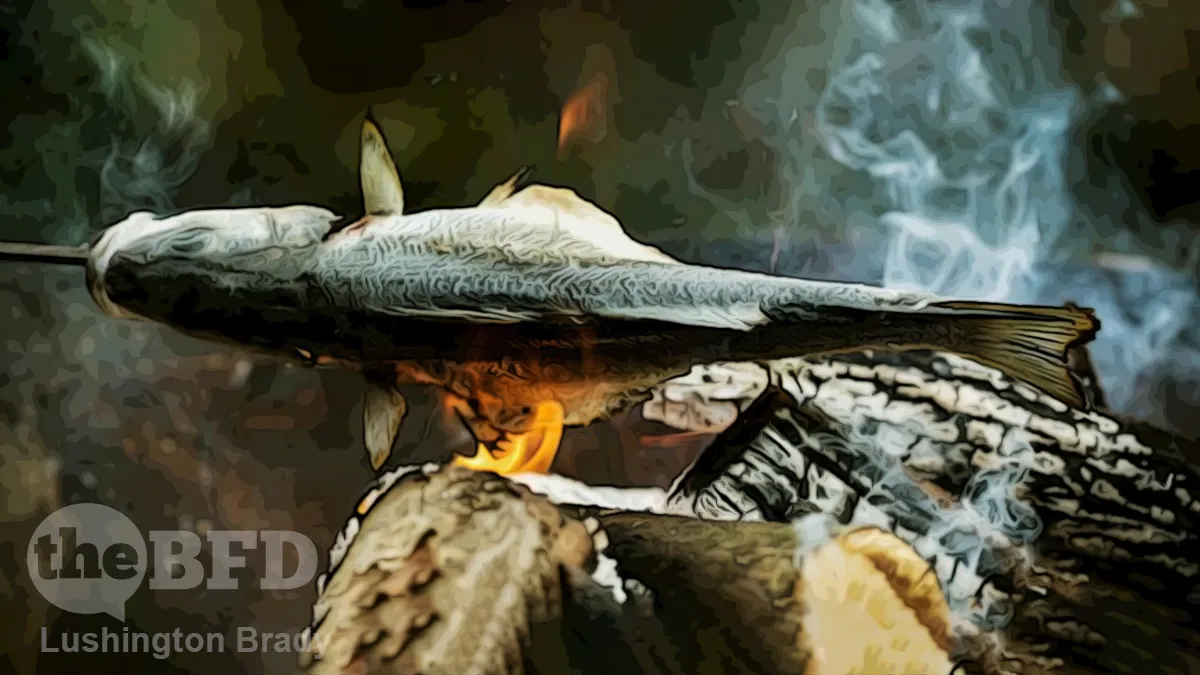Table of Contents
In his A Short History of the World, Geoffrey Blainey writes that the ability to make and use fire was “the most useful tool possessed by the human race until recent times”. For all it’s astonishing usefulness, though, fire came to the human toolkit surprisingly late. Humans – or our ancestors, at least – were making stone tools at least 3.3 million years ago. That’s before the genus Homo had even appeared. These tools were used, among other purposes, to cut meat from animal bones.
But the nascent humans still ate the meat raw – and would continue to do so for a very long time. How long?
An international team of scientists working in the northern sector of the Dead Sea claims to have found the earliest signs of cooking by prehistoric humans.
At an archaeological site called Gesher Benot Ya’aqov, the remains of ancient carp-like fish show signs of having been carefully heated 780,000 years ago.
This is not the oldest sign of humans using fire, though – sites dating back 1.5 million years, and the early hominid Homo erectus, contain charcoal and burnt bones. But it’s the oldest unequivocal evidence of cooking (and it still pre-dates the arrival of we Homo sapiens).
Until recently, the oldest evidence of cooking was the heated remains of starchy plants found in an underground oven in Africa. And that site only dates back 170,000 years.
That’s 600,000 years after early humans in Israel were cooking fish in a valley near the Dead Sea.
“We do not know exactly how the fish were cooked but given the lack of evidence of exposure to high temperatures, it is clear that they were not cooked directly in fire, and were not thrown into a fire as waste or as material for burning,” says archaeologist Jens Najorka of the Natural History Museum in London […]
The findings push back our ancestors’ control of fire to the mid-Pleistocene, a time when populations of Homo erectus were giving way to bigger-brained hominins, like Homo heidelbergensis.
Fish may be a natural item to be first on the cook-fire. As any sashimi aficionado knows, raw fish is a magnet for pathogens. The risk of fish eating may have been attested by the Tasmanian Aborigines, who, it seems, had a deep-seated aversion to consuming scaled fish.
More importantly, though, cooking and eating meat such as fish may have been an invaluable evolutionary boost for our hominid ancestors. Unfortunately, it took nearly a million years to get around to inventing chips.
“Gaining the skill required to cook food marks a significant evolutionary advance, as it provided an additional means for making optimal use of available food resources,” explains archaeologist Naama Goren-Inbar from the Hebrew University of Jerusalem […]
It might have even helped humans leave the African continent and live elsewhere. By jumping from freshwater habitat to freshwater habitat, hominins could ensure they had a good supply of fresh water and nutrient-rich foods.
Scientists have argued for years now that eating fish rich in omega fatty acids, zinc, and other crucial nutrients is what allowed the human brain to evolve such great complexity.
Raw fish probably suited the earliest hominins just fine, but as cooked fish made its way into our ancestors’ diet, it would have made digestion easier and saved people from consuming dangerous pathogens. It would have also given hominin brains a bigger boost of nutrients.
As primatologist Richard W Wrangham has long argued:
The evolutionary shift from raw to cooked food was the “transformative moment” that fueled the bellies of early humans and allowed their brains to grow, giving rise to our genus and ultimately our species.
Science Alert
The necessity of cooking can also be underscored by the fact that no known human population today lives without cooking. The rare cases where meat or fish are consumed raw (as in sashimi or steak tartare) exist merely as luxuries. Otherwise, cooking is one of the most ubiquitous human skills. While human cultures may use a toolkit ranging from things of stone and wood to atomic energy, the one constant is cooking.
Perhaps it’s time to enthrone the cook as the world’s truly oldest profession.







